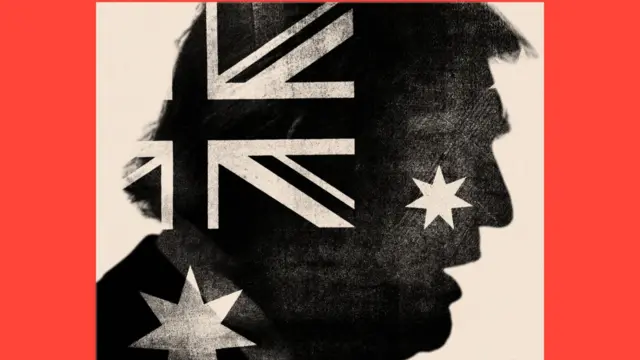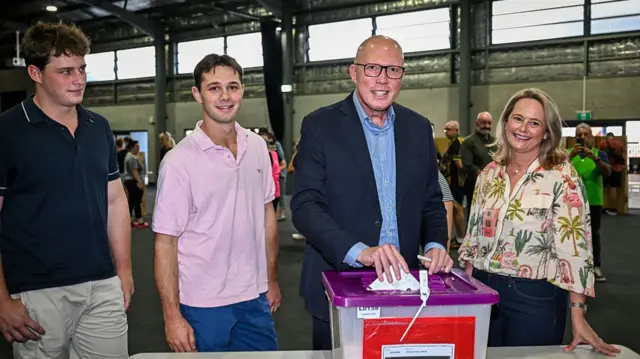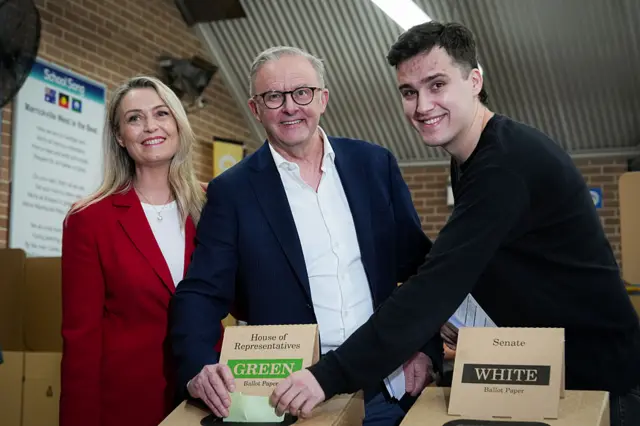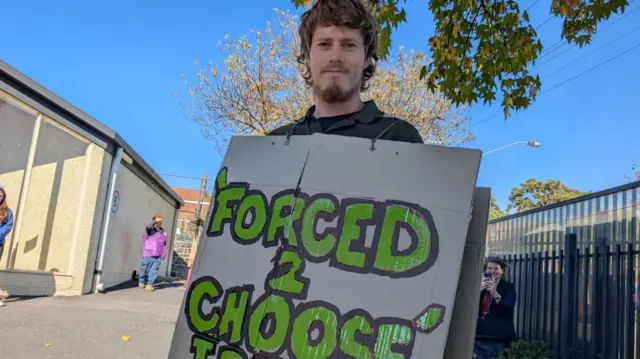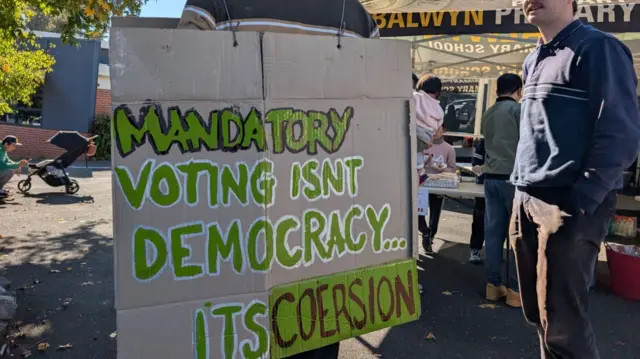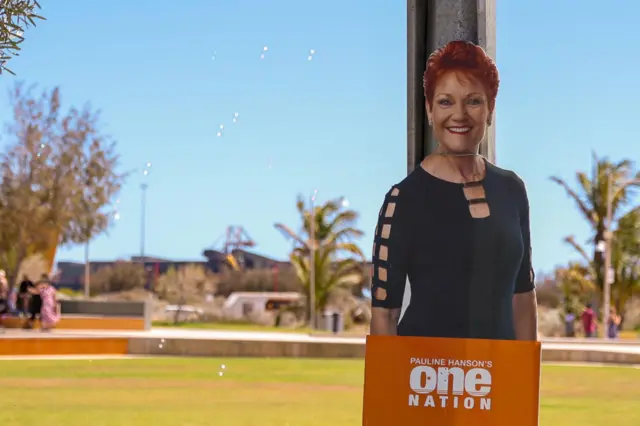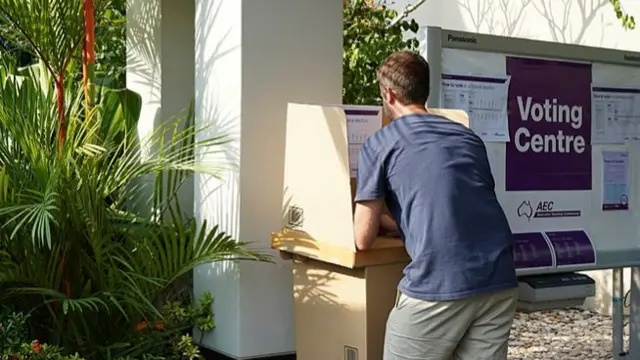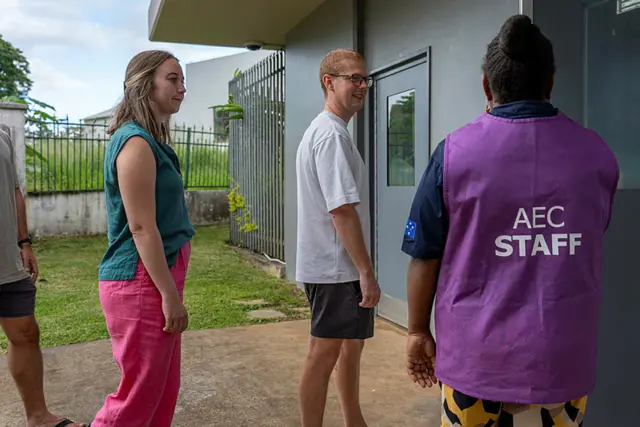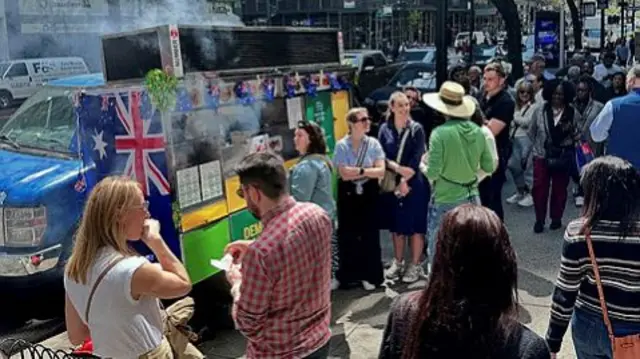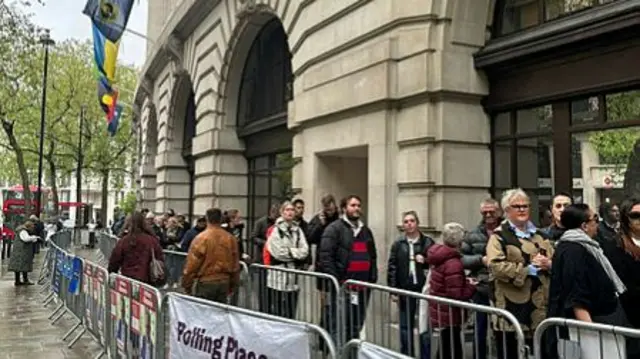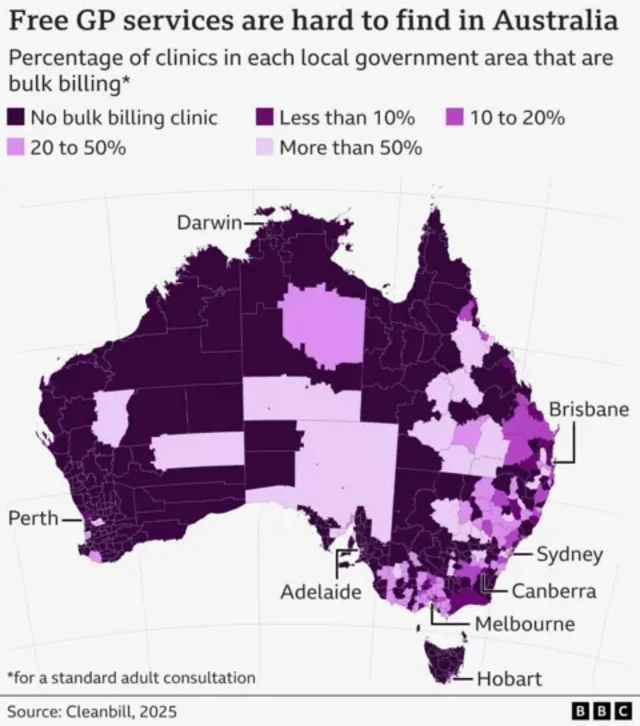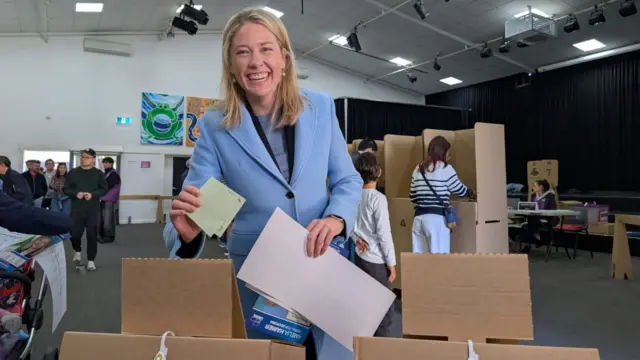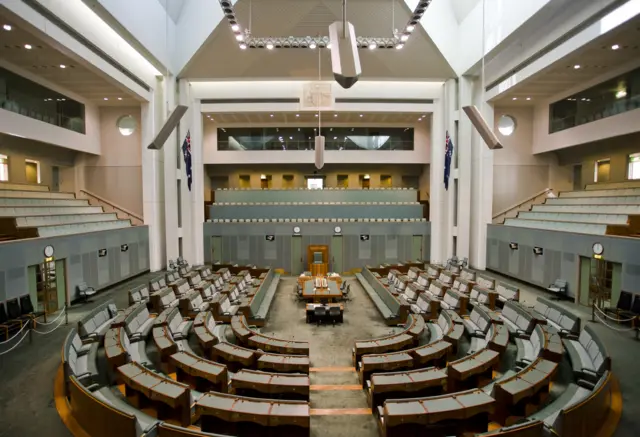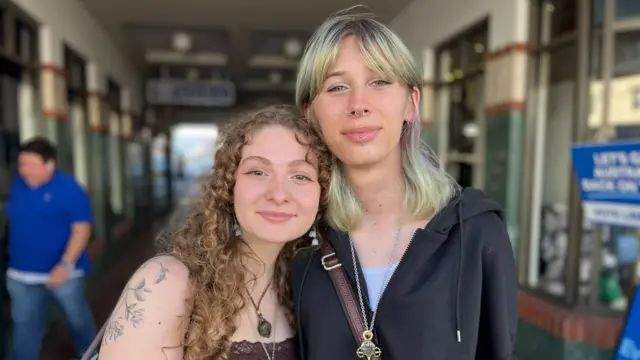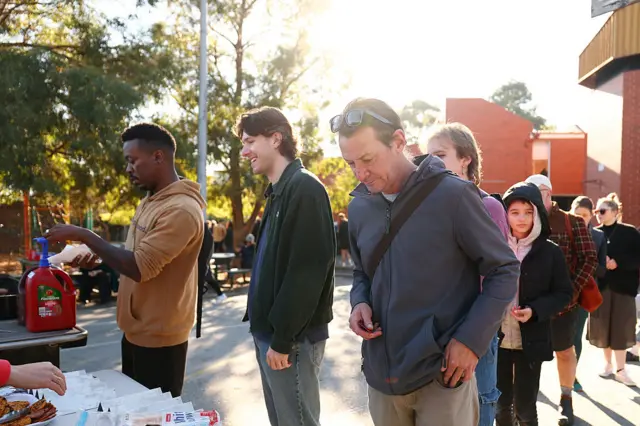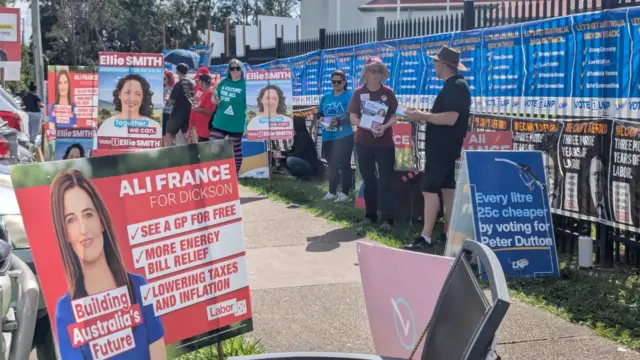'There is no safe seat' for the Greenspublished at 06:11 BST 3 May
 Tione Zylstra
Tione Zylstra
Reporting from Brisbane
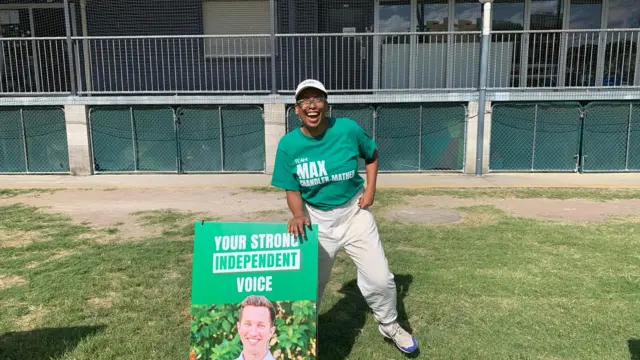 Image source, Tione Zylstra
Image source, Tione ZylstraGabba Ward Councillor Trina Massey is keeping her energy high today, as she talks to prospective Greens voters at West End State School.
Despite the Queensland electorate of Griffith’s position as a relatively “safe” Greens seat, the party isn’t planning on slowing down their campaign today.
This is because, according to Greens Councillor for Gabba Ward, Trina Massey, a “safe” seat is a myth.
“The green vote is quite high in this area, but I think the really important thing to note is that there is no safe seat. It’s really important, any time a seat is treated safe by any party, they’ve lost touch with their values,” Massey explains.
“I think, overall, no matter what happens here in Griffith, we are in an exciting part of the Australian electoral system. There are shifts in demographics that are happening in real time."
Massey also believes that this election is going to show different voter strengths coming into play.
"To me, this is such an important election, and I am excited to see Australia make the right choices, because I trust them.”
